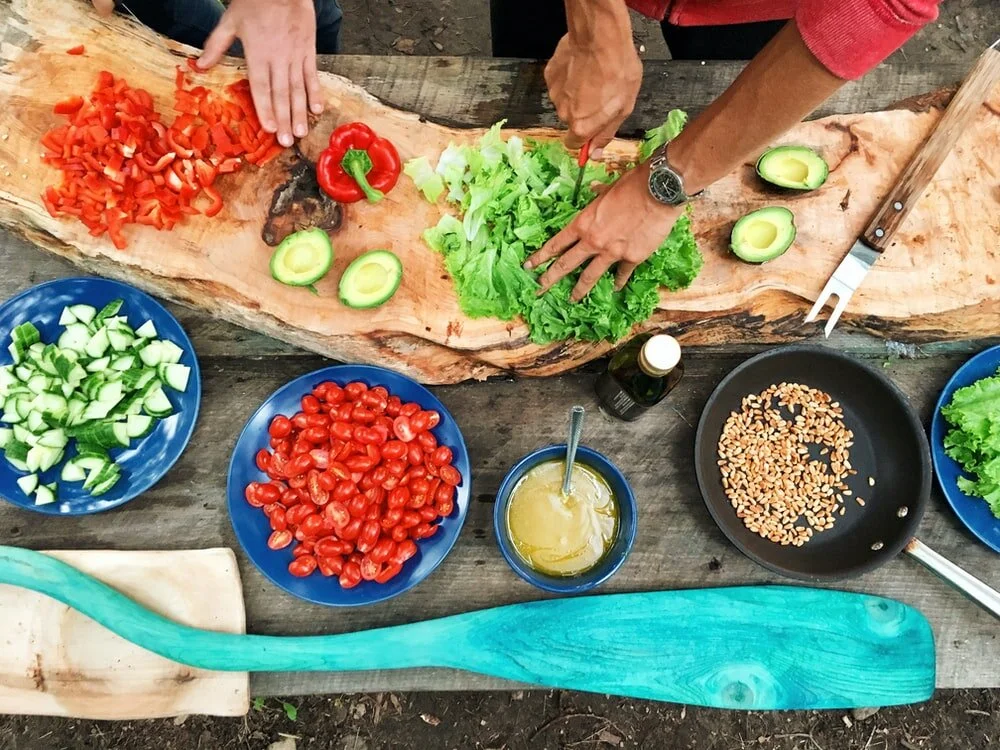Addressing Substance Use In The Hospitality Industry
Presented by Society Insurance
To write your own article click here
By Jamie Imhof
(Trigger Warning: drug and addiction content)
I’m the manager of a busy, popular, fine-dining restaurant. My staff respects me as I mutually respect them. It’s 5:00 p.m. on a Friday night, and one of my best employees comes to me into the office with a handful of pills. I have one rule regarding the staff I manage: I can’t control what they do before they come into work or afterward, but they know I won’t tolerate using drugs on the job. However, I have an open door policy, and the staff member is asking for help in identifying the pills. I identify (with a biochemistry background) and take away what appears to be sold-prescription pills and morphine pills. I can’t stop employees from taking pills, but I can try to keep them alive.
It's impossible to constantly test hospitality workers for drug use. Though, drugs such as these are a reality and rampant throughout the industry. Fentanyls (synthetic opioids), stimulants, and other opioids have rapidly grown as the most dangerous drugs. They are considered a deadly class in overdose rates, named “the country’s other epidemic” (The New York Times, July 2021). They can be laced with everything, from fake Adderall pills to marijuana.
Restaurant work is hard, it’s 12-15 hours on your feet—dealing with hundreds of guests, coworkers, lack of a work-life balance, added stress, uncertainty, relationships, financial issues—and yet, remaining smiling the entire time since you are always on stage. It’s no wonder people turn to using substances during and after shifts. For years I was guilty of the same.
I speak on this because in my establishments I now keep several bottles of Narcan on hand (an FDA-approved emergency treatment for opioid overdoses, given freely by local health departments). I have my staff trained on noticing the differences between someone nodding off or being slightly overindulged versus an overdose. It is a nasal spray that if given as soon as possible, even before a first responder can arrive, can be the difference between life or death.
Addiction knows no boundaries, social or economic classes, gender identities, or race identification. It’s a silent killer that hides in the background. And unless we speak up about it, remove the stigma, train staff in the right manner, and provide the resources available, it’s only going to get worse.
To help, there are several mental health and sobriety groups on all social media platforms. Encouraging activities for staff, such as yoga instruction or mediation, is another way. In fact, one morning I came into work and one of the staff members was sitting at a table well before opening coloring in an adult coloring book. The employee said it helps with anxiety, especially before a very busy shift. So, I offered an extra 15 minutes before setup.
The hospitality industry employed between 8-11% of the U.S. workforce between 2020-2021, and we have lost too many people over the years to drug and alcohol abuse. It’s time to start openly addressing the deeper, unspoken side of substance use. It’s time to speak up.
See author bio for awareness and recovery resources
Headquartered in Fond du Lac, Wis., Society Insurance has been a leading niche insurance carrier since 1915. As a mutual insurance company, Society focuses on the small details that make a big difference to its policyholders while offering top-notch insurance coverage, service and competitive pricing to businesses in Wisconsin, Illinois, Indiana, Iowa, Minnesota, Tennessee, Colorado, Georgia and soon Texas.
I'm a former bartender, level 2 somm, Bar 5-day mixologist, GM, and have worked for several top establishments of which I’ve won awards. During the pandemic, I changed my view on life, so now I'm an independent consultant, contractor, and a social activist working a law degree geared towards the hospitality industry.
For additional information and awareness of substance abuse:
(Facebook)
@lostvoicesoffentanyl (public/open)
@fentanylawarenesscoalition (public/open)
@addictiontorecovery (public/open)
@drugaddictionsupportadviceandhelp (private)
@addictsfightingaddiction (private)
AA hotline:
https://aameetingsupportline.org
NA hotline:
https://www.na.org/meetingsearch/
The color purple is recognized in the movement for addiction awareness. It can mean someone is in recovery and/or lost someone to addiction. September is recognized as ‘National Recovery Month’ to bring awareness.
Opinions expressed in this article do not necessarily represent the views of Best Served. To achieve our mission of bringing more voices to the table, we are committed to sharing a variety of viewpoints across the industry.





